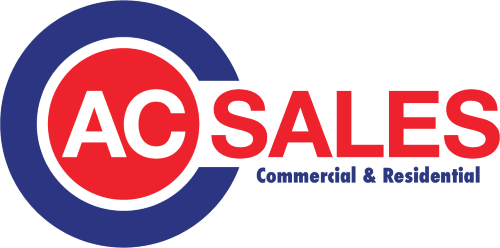
To avoid rising energy costs and work toward a more sustainable life, many homeowners are looking for ways to enjoy the same standards of comfort while reducing utility bills. With help from the Inflation Reduction Act, federal tax credits are available for energy-efficient home upgrades, especially HVAC systems like air conditioners. These credits offer big savings, as long as the homeowners use eligible equipment and submit the right paperwork.
If you’re worried about a long, complicated process, maybe we can help! AC Sales hopes this guide will give you what you need to secure 2024’s HVAC tax credits. Here’s how to make it happen.
How Do These Tax Credits Work?
These valuable tax credits for boosting your home’s energy efficiency are just one small part of the recent Inflation Reduction Act. Energy costs affect everyone, so helping homeowners upgrade to higher efficiency utilities can benefit everyone. The primary goal of these credits is to help pay for high efficiency HVAC equipment and other projects. The two we’ll cover are the Energy Efficiency Home Improvement Credit and the Residential Clean Energy Credit.
But keep in mind, in order to apply for the credits, you’ll have to fill out IRS Form 5695. Additionally, this form has to be submitted for the same tax year the upgrades were installed, not purchased.
Energy Efficiency Home Improvement Credit
Through 2032, the Energy Efficiency Home Improvement Credit provides up to $3,200 annually for energy-efficient home upgrades. This amounts to 30% of the total project’s cost. It's important to note in order to receive the maximum amount, it involves making different investments. For example, you’ll get up to $2,000 for installing a higher efficiency heat pump. This can be paired with an additional $1,200 in credits for more projects in the tax year.
While new heat pump systems are a great use of the program, other HVAC upgrades like efficient furnaces and air conditioners also qualify. It will help to confirm the make and model’s energy efficiency rating is high enough for eligibility.
Residential Clean Energy Credit
The Residential Clean Energy Credit amounts to roughly 30% savings on a number of other residential clean energy efficiency projects. Eligibility only applies to homeowners seeking to update existing or newly constructed homes. While the Home Improvement Credit works primarily with utilities and HVAC systems, this credit is more about renewable energy sources like solar and wind energy.
Some key details of this tax credit include the requirement that installation must occur between 2022 and 2032. But at the same time, homeowners can keep the excess credit to reduce future taxes. This is a great way to soften the entry into investing in clean energy.
What Else Is Eligible for These Tax Credits?
Because HVAC systems are one of the biggest expenses on your energy bill, these tax credits incentivize the most energy-efficient options. But home energy efficiency can be improved in many other ways. Apart from the previously listed HVAC upgrades, {you could also choose|other eligible items include|you also have access to:
- Heat pump water heaters
- Electrical panel upgrades
- New electrical wiring
- Enhancements to insulation, air sealing, and ventilation
- High-efficiency electric stoves, cooktops, ranges or ovens
- Efficient heat pump clothes drying solutions
- High-efficiency water boilers
Just like with installing one or more HVAC systems, you’ll need to check that your preferred make and model features the required energy efficiency ratings.
Three Tips for Making the Most of 2024 HVAC Tax Credits
While any of these upgrades can improve your home’s energy efficiency, some planning ahead will ensure more long-term benefits. Maximize your HVAC tax credits with the following three tips:
- Conduct a home energy audit to identify impactful upgrades. Rely on professional HVAC assessments for crucial advice.
- Enhance your home's envelope by addressing inefficient windows and doors.
- Look into rebates for clean energy projects from utilities. Renewable sources like solar, wind, and geothermal contribute to community power grid sustainability.
- Don’t forget financing options from local service companies, which can help reduce costs even more.
AC Sales Can Help You Secure HVAC Credits for 2024
Partner with local HVAC professionals like AC Sales for help with home energy audits and new installation projects. Our experienced installers know how to provide all you need for home energy efficiency upgrades.
 Skip to content
Skip to content
